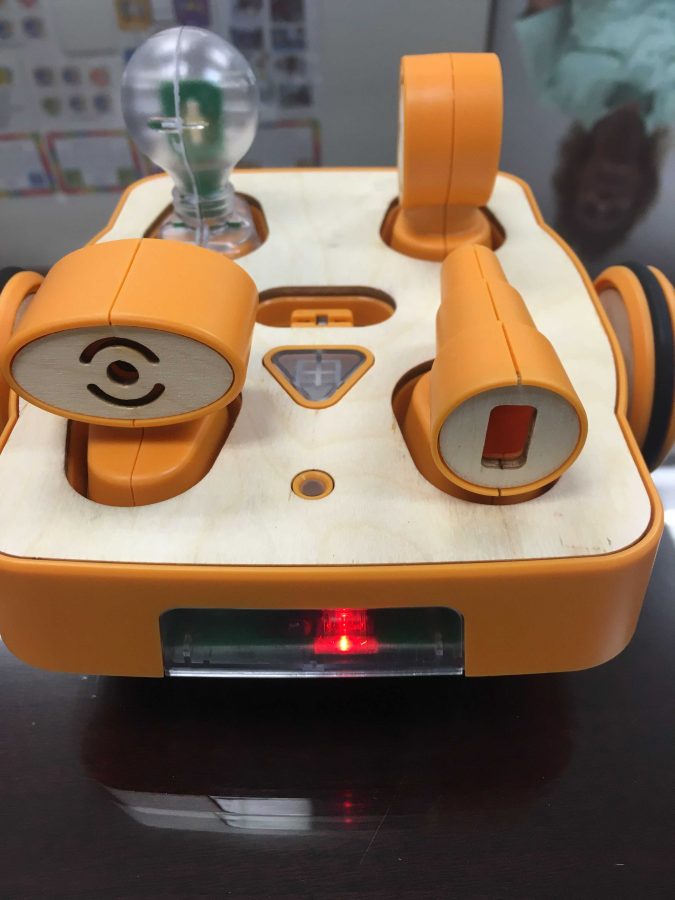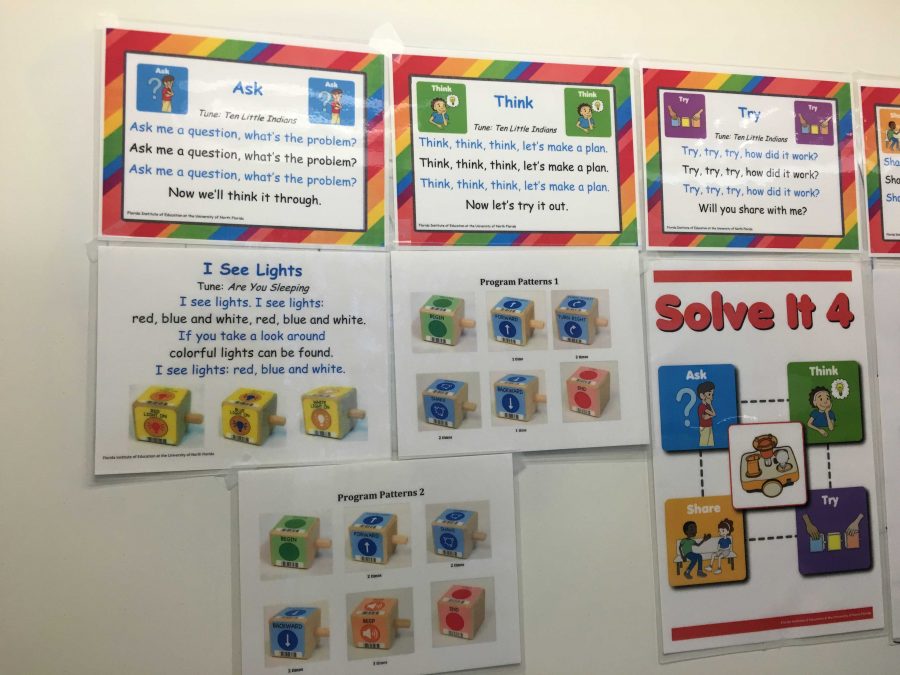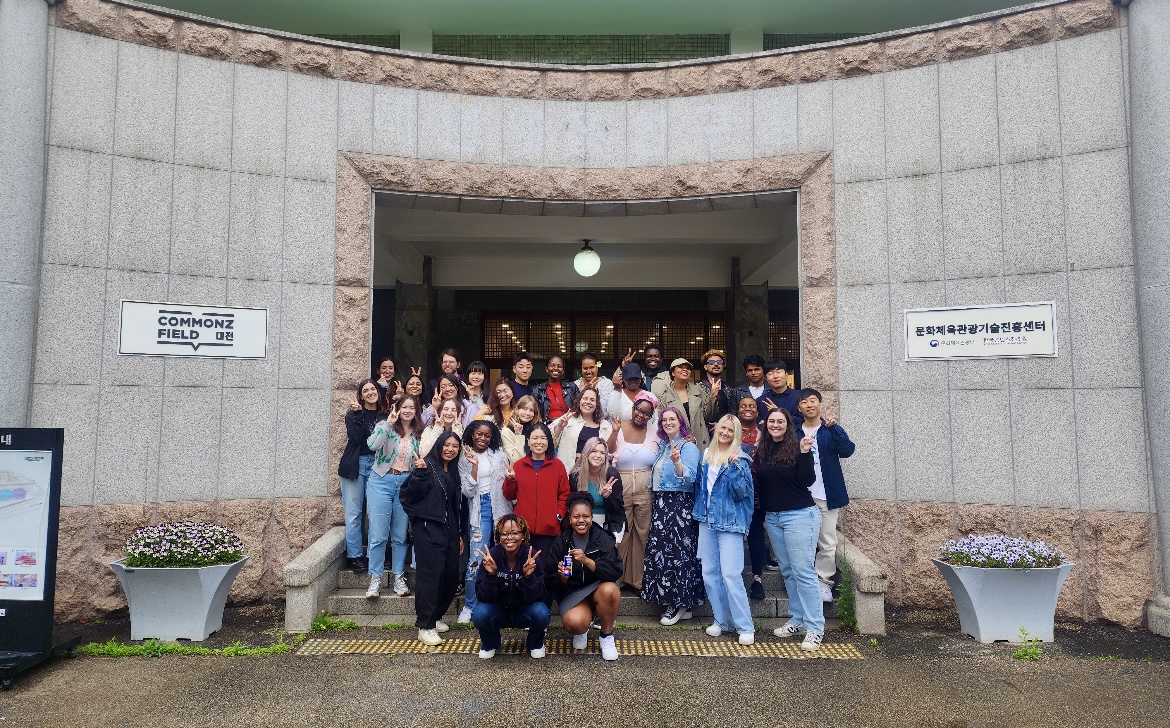Video By Tiffany Butler, Tiffany Salameh and Brittany Moore
The Florida Institute of Education (FIE) at the University of North Florida is using robotics to teach preschoolers problem solving skills. The curriculum hopes to jumpstart kids’ understanding of more technical aspects of education.
Research Associate Debbie Carlson said there’s an abundance of jobs in science, technology, engineering and math (STEM), that it’s important to expose students to the concepts early. The curriculum works with an interactive robot called KIBO to teach basic concepts of programming, teamwork and problem-solving skills. It’s designed to be simple enough for children who haven’t learned to read and based in simple, life-like scenarios.
“Most people solve problems everyday and don’t even realize they’re doing it,” said Assistant Director for Research and Evaluation Stephanie Wehry. “What this program does, is it allows the children to use the robot to figure out how to solve a problem.”
KIBO is battery operated and has a small scanner built into it. Accompanying the scanner is a program that looks like a set of blocks. The different blocks have varying colors, actions, directions and barcodes. Children are taught, as long as there is a set beginning and end, they can scan the blocks in any order. Curriculum Research Associate Brownwyn McLemore said kids start with situations such as putting KIBO on a blue piece of paper and pretending he’s fallen into a puddle, and they have to use the program to get him out. More difficult situations involve navigating maps.
The program was launched as a three-month pilot project in which McLemore, Carleson and another researcher went to six different classrooms, twice a week each.
Three local preschool centers currently use the KIBO technology and FIE curriculum.
—
For more information or news tips, or if you see an error in this story or have any compliments or concerns, contact editor@unfspinnaker.com.













